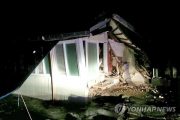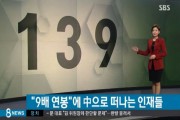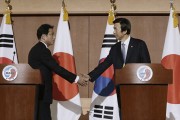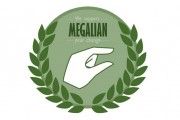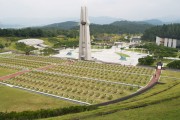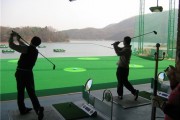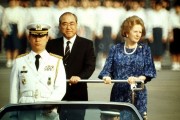In Korean cyberspace, a movement to vilify Jeolla Province in the southwest of the country is growing, led by the popular conservative internet forum Ilbe (for more on Ilbe see here). Jeolla has long enjoyed a reputation as a haven of anti-establishment sentiments, partly due to its exclusion from the national economic development agenda under military rule and to the much celebrated Gwangju democratic uprising of May 18th, 1980, which took place in the provincial capital and met bloody suppression by the dictatorial regime of then-president Chun Doo-hwan. Jeolla ’s non-conformist political identity has become more pronounced over the years following the province’s production of many leftist politicians including its most famous son, former president and Nobel Peace Laureate Kim Dae-jung who advanced his ‘Sunshine Policy‘ of rapprochement toward North Korea.
Though regionalism, especially the rivalry between Jeolla and Gyungsang Provinces in the south, has been perennially cited as a chronic obstacle to Korean national unity, what alarms certain commentators is the rapid embrace by young internet users of outdated nativist allegiances more typically associated with older Koreans. Especially troubling is the sudden and vitriolic identification of Jeolla as a suspected locus of anti-nationalism and communism, an echoe of the charges made against the province by the past military regimes. As reported by the daily Kungmin ilbo, hong-eo, a type of skate considered a delicacy in Jeolla but infamous for its noxious smell, is being deployed by right-leaning netizens as a derogative metaphor for the province’s inhabitants as well as liberal politicians in general. To say that a person ‘reeks of hong-eo’ suggests that he or she is suspected of leftist and/or pro-North Korean sympathies.
This particular news article, which discusses rosy recollections of Chun Doo-hwan’s dictatorial rule by Koreans under thirty, also hints at the ongoing revalorization of Park Chung-hee – another military strongman and the father of the current president-elect Park Geun-hye – that is now taking place. The idea that the forcible crackdown on democratic activists at the Gwangju uprising was justified at the time is gaining currency among the young who are increasingly disillusioned with the shrinking number of economic opportunities for their generation and are turning to rightist cyber activism and scapegoating as a coping mechanism.
Experts in discussing the problem of young Koreans’ ‘misunderstanding’ of modern and contemporary history, i.e. the acceptance of Korea’s military past as not only a necessary evil but also a golden age, reference the controversial educational curriculum reform of 2009 as a pivotal event in conversion of young minds. It took place under the outgoing president Lee Myung-park, a conservative, and generated much opposition from leftists who saw the textbook revision as a maneuver by the right to recast the legacy of military dictatorship as a positive force and to win the battle over the support of the younger generation of voters. If the vociferous condemnations on Ilbe of Jeolla and the Gwangju democratic uprising are any indications, it seems that the maneuver may have worked.
From Hanguk Ilbo:
Immature Historical Consciousness: 5.18 Called ‘Riot’ And Chun Doo-hwan Idealized
Real Lack of Modern/Contemporary History Education for Koreans under Thirty
Internet Verbal Exchange Turns into ‘Real-life Duel’
On January 14th, ten or so men gathered in small groups in front of the main gate of Korea University’s Anam campus in Seongbuk District of Seoul. As the needles of the clock tower nearby approached 10:30 am, the faces of the men, all in their twenties, slowly hardened. They were there to witness an example of the so-called hyunpi, an internet parlance for a fisticuff caused by an online war of words. Hyunpi is a neologism combining the first letter of the Korean word for ‘reality’ – or hyunshil – and the first alphabet of an internet gaming phrase ‘Player Kill.’
It all started the previous weekend when a netizen using the ID ‘Taejuni’ on a movie downloading site disparaged the May 18th Gwangju democracy uprising as a ‘riot.’ A netizen named ‘JJKA’ rose up in disagreement, leading to accusations and personal attacks between the two men. Both claiming to be students at Korea University, they promised to meet in person and ‘resolve [the disagreement] through a physical fight since words were not working,’ and the news of their hyunpi spread to other websites, attracting onlookers.
The man who characterized the Gwangju uprising as a riot did not show up, preventing a mayhem. But the distorted historical awareness of the young and a lack of historical knowledge on their part are leading to serious concerns. Indeed, on many Q&A pages of various internet portal sites there are many questioners who see the Gwangju democratic uprising—a turning point in Korea’s democratization—as a simple riot by malcontents.
Meanwhile on the internet a term Chun ddaengkeu is gaining traction. It evokes the image of former military dictator Chun Doo-hwan riding a tank. Used broadly, it refers to a charismatic leader who engineers economic growth in order to achieve democratic reforms. In addition, the bloody suppression of democratic activists in Gwangju by Chun is increasingly portrayed by the young as an unavoidable choice made by a national leader under martial law conditions. This is a view that is difficult swallow for older Koreans who filled the streets during the June 10th, 1980, protest in opposition to the government’s violent crackdown in Gwangju the month before.
The former president was tried in 1995 for heading an internecine war and a rebellion. In a judicial ruling on the event of 1980, Chun was sentenced to death, but later had his sentence reduced to life imprisonment on appeal. The Gwangju uprising also led to a 1990 law granting compensation and rehabilitation of victims. But a revisionist interpretation of contemporary history persists. The Samcheong Re-education Camp, a notorious symbol of human rights abuse under the former military regime, is now championed by some as ‘the only solution to the increasing incidents of violent crime’ in contemporary Korean society.
Education experts believe that the absence of historical consciousness among the young is a side effect of diminished history curricula resulting from the educational reform of 2009. They also attribute the problem to the uncritical acceptance by the young of the extreme right’s distorted historical views which are proliferating on the internet.
Professor Pak Tae-gyun at the Graduate School of International Studies at Seoul National University lamented, ‘The question of the Gwangju democracy uprising has already been resolved in conformity with social consensus and universal values such as human dignity and respect for democratic principles. This is regardless of whether one is a liberal or a conservative. The spread of a flawed historical understanding among the young nowadays shows that history education is not working.’
Professor O Su-chang in the department of Korean history at the same university said, ‘We cannot slight education on contemporary history just because there are those who have a wrong historical point of view and oppose such action.’ He emphasized, ‘The responsibility of the older generation is to cultivate democratic citizens.’
Comments from Naver:
jsk6****:
Why don’t you say that the community site [you are talking about] is Ilbe, Mr. Reporter…?
ydo8****:
Why do people in their twenties have regional biases? Adults have real-life experiences to base their anti-regional feelings on, but I don’t understand people in their teens and twenties with this kind of attitude. It’s funny to see them say “commie, commie” and “leftist, leftist.” Do they know what they are talking about? It’s sad.
dhwn****:
I accept everything, but as for the thing about the Samcheong Re-education Camp, it’s because there are non-human monsters roaming the streets and it’s scary~!!! It’s only being said because the whole thing about protecting these people and their human rights rubs people the wrong way.
본인은전장군:
Re-introducing the Samcheong Re-education Camp is an absurd argument? Then what about the reality of having robbers, rapists and murderers live in comfort at paradise-like prisons after murdering innocent citizens? The reporter needs to study the fundamental reason the argument is being raised.
suir****:
The Samcheong Re-education Camp needs to be re-introduced. Thugs and school bullies should all be rounded up and re-educated. I hear that thugs who kill people barely suffer any legal punishment, but get to eat special food in prison, talk on mobiles, and receive all kinds of benefits. How can the rule of law work under this circumstance? I hear that even organized criminals in Macao tremble before the People’s Liberation Army. Thugs should be suppressed by the military.
tjtn****:
Most commenters are middle and high school students. They do it for fun, so this cannot be seen as people’s opinions. This is just a children’s playground.
kofk****:
Ilbe parasites are ruining the country.
kuku****:
I am just ashamed…
fjgh****:
Some comments make it seem like Jeolla province was solely responsible for democratization [of Korea], but it’s not true.
kju1****:
Chun Doo-hwan: Just pay your damn taxes.
sung****:
Please explain why there were so many Soviet Union-made rifles among the confiscated weapons at the end of the [Gwangju uprising] situation.
uni_****:
I don’t know much, but why does North Korea commemorate May 18th and treat [the activists] like their own heroes?
gary****:
There were thirty some weapons’ depots that were robbed simultaneously. How could ordinary citizens know a military secret like the precise location of these facilities? I don’t even know how many police stations are in my neighborhood. If it is justifiable for an ordinary citizen to rob a weapons’ depot and use guns, then are the American episodes of gun violence also examples of democratic activism?
2___****:
The Korean Teachers and Education Workers’ Union have taught them well for the last ten years, chuh-chuh… How can even a reporter not know about how North Korean guerillas robbed the weapons’ depots.
blis****:
Sigh, ke ke. Try calling Chun Doo-hwan a great president in real life. You would be lucky not to get stoned in the streets, ke ke. Have you had a proper meal yet, you Ilbe parasites? Now I just feel sorry for you.
